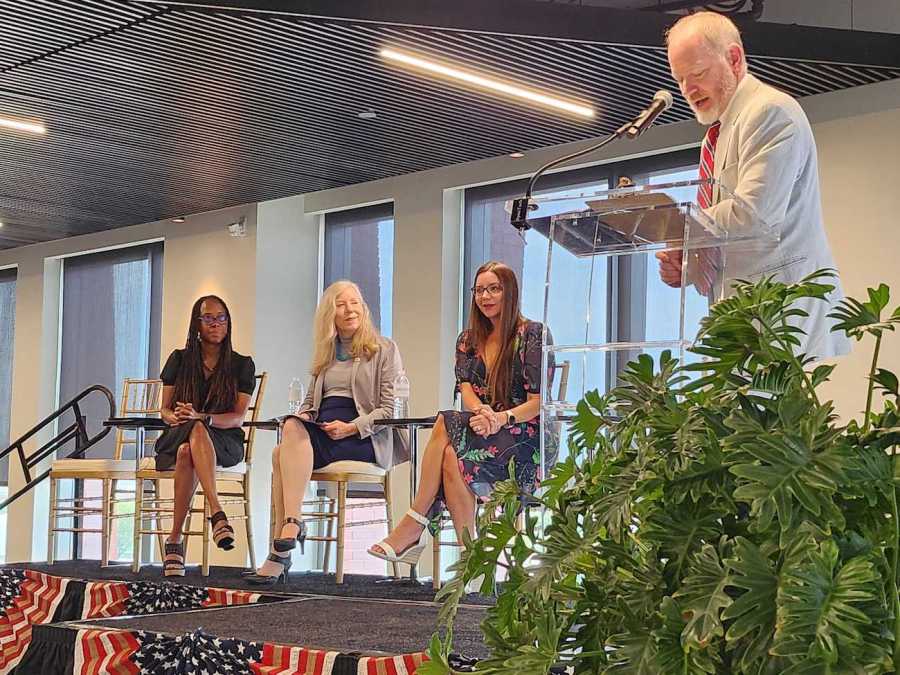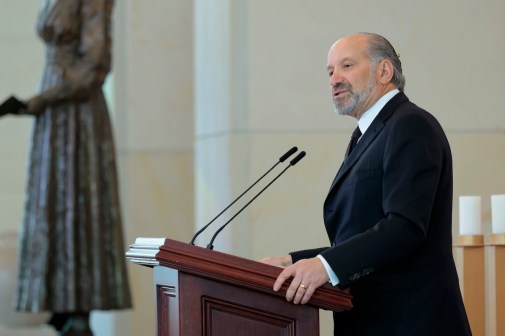State broadband officials call grant awards ‘wonderful,’ if less than expected

A day after the Biden administration announced how it will distribute its nearly $42.5 billion Broadband, Equity, Accessibility, and Deployment grant program, a group of state broadband officials touted the hundreds of millions of dollars they’re set to oversee, but with a note of curiosity as to why their awards weren’t greater.
While this infusion of cash — from the $107 million for Delaware to the $3.3 billion Texas is getting — is undoubtedly cause for celebration, some of the broadband officials questioned how the National Telecommunications and Information Administration arrived at its funding decisions.
Speaking at an event in Washington hosted Tuesday by Broadband Breakfast, Jade Piros de Carvalho, director of the Kansas Office of Broadband Development, said she was pleased with the $452 million awarded to her state, but that she wanted to review how the NTIA arrived at that number. The NTIA’s distribution of the BEAD fund was based largely on data contained in the Federal Communications Commission’s nationwide coverage maps, which have been under scrutiny for months.
“I’m curious to see this formula and how they figured that all out, because Missouri right next door to us got $1.7 billion,” Piros de Carvalho said.
Kelly Schlegel, director of the New Mexico Office of Broadband Expansion, agreed that the funding was “wonderful,” but expressed some disappointment that her state only received $675 million allocation. Neighboring Colorado and Arizona got $827 million and nearly $1 billion, respectively, while Texas is due $3.3 billion.
“I had seen some analysts and reports over the last few months that put New Mexico at $622 million, so that’s what I reported to [Gov. Michelle Lujan Grisham] and the legislature,” Schlegel said. “So when they heard $675 million they were happy. But in my head, I really wanted in the 700s.”
Schlegel said New Mexico submitted 34,000 locations to the FCC that were not added to the map during the months-long challenge process leading up to the NTIA’s grant allocation. That, she said, was a “big hit” to the state’s total award.
Virginia, which is due nearly $1.5 billion, was a bit more successful in challenging the FCC’s map data, said Tamarah Holmes, director of the Office of Broadband at the Virginia Department of Housing and Community Development.
Holmes described how the commonwealth used existing state-level maps to challenge the FCC’s data, crediting one young staff member whose job centered on filing challenges with increasing Virginia’s total award by nearly $200 million.
As the BEAD allocations set Monday are not going to change, state broadband officials need to look forward and concentrate on spending their money effectively, Schlegel said.
“We’re all celebrating about the money right now, and yesterday we had our heads in the clouds,” she said. “It was wonderful, but now we have to get to execution and get our feet on the ground. It’s such a big deal.”






